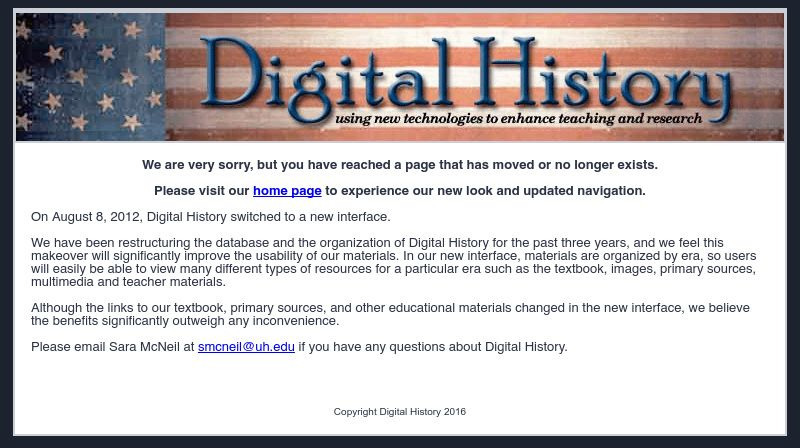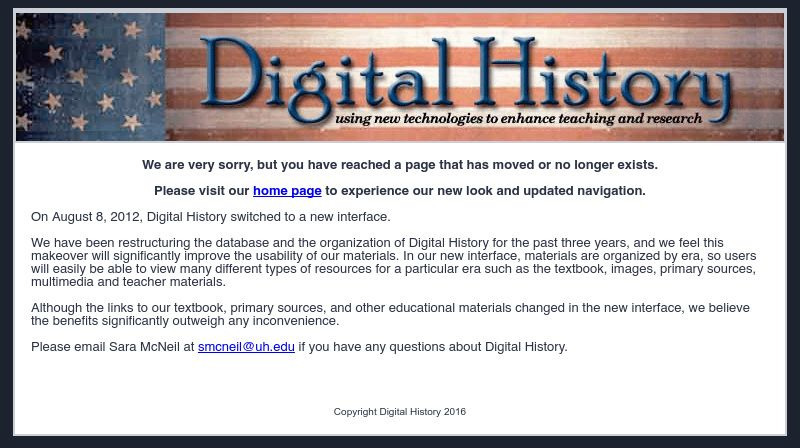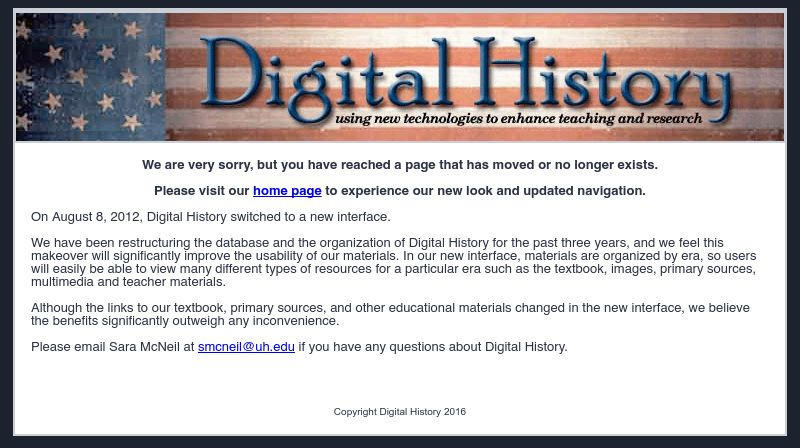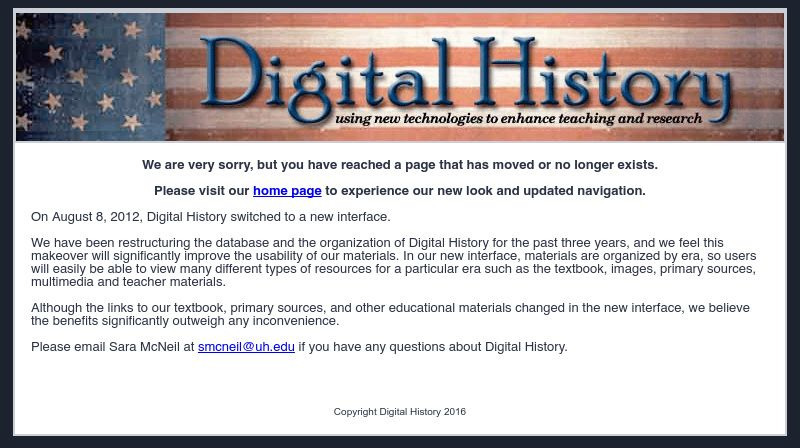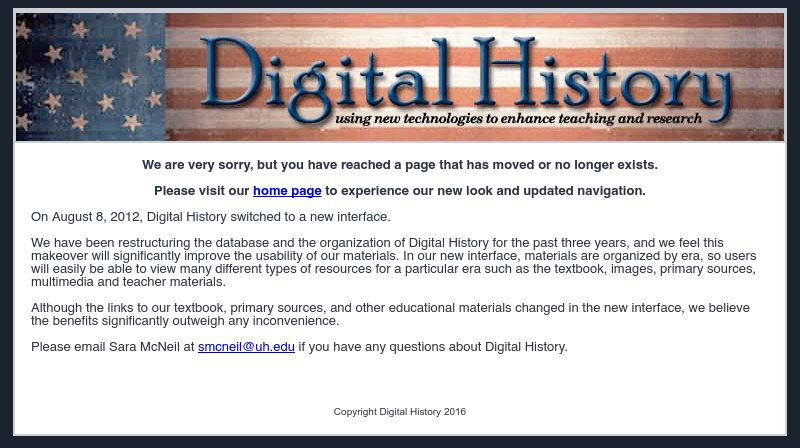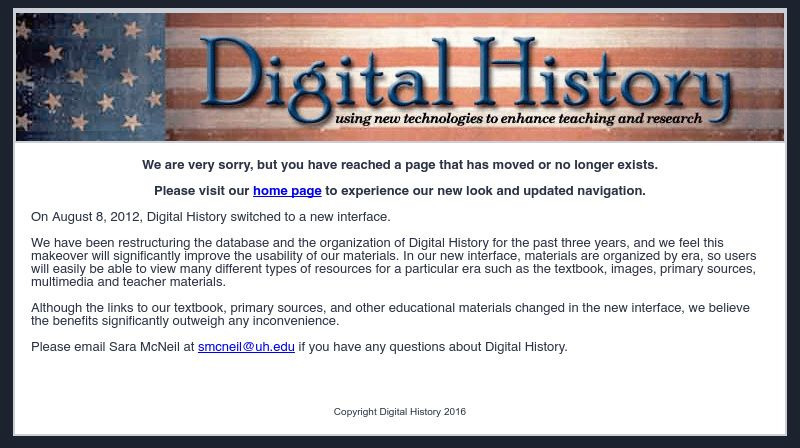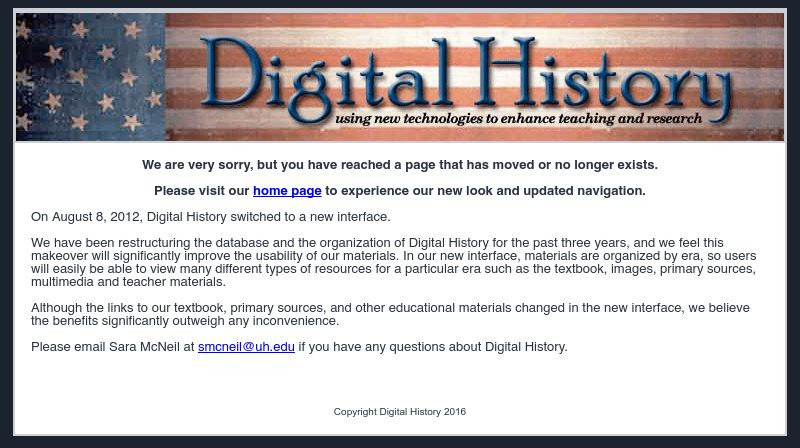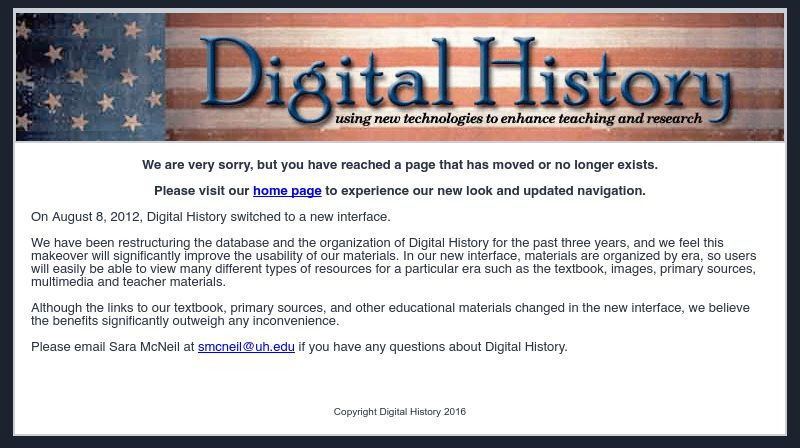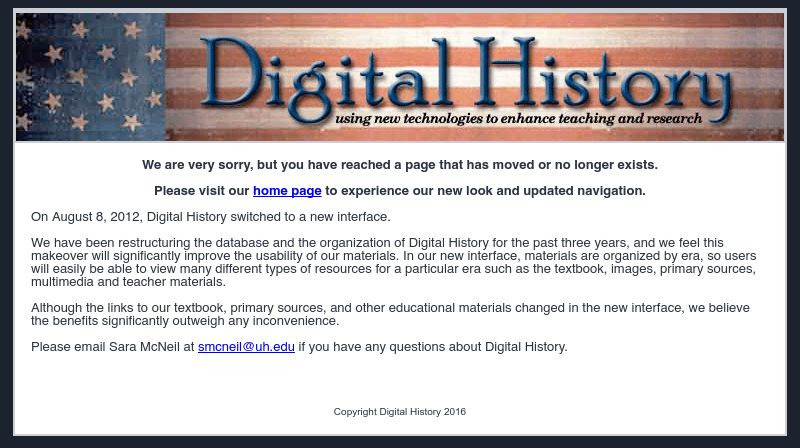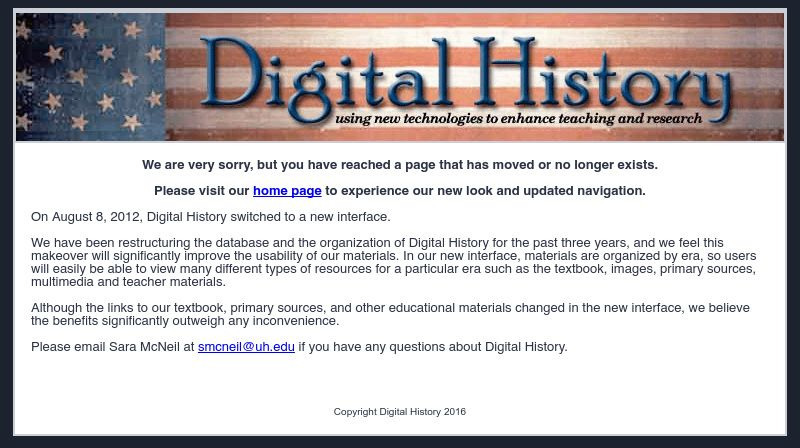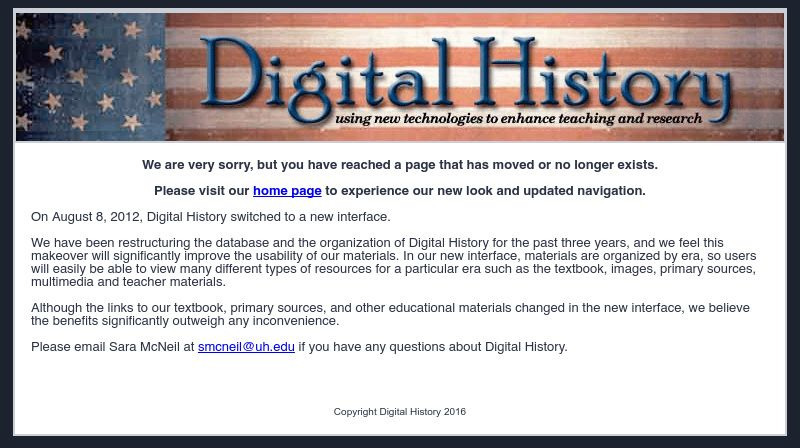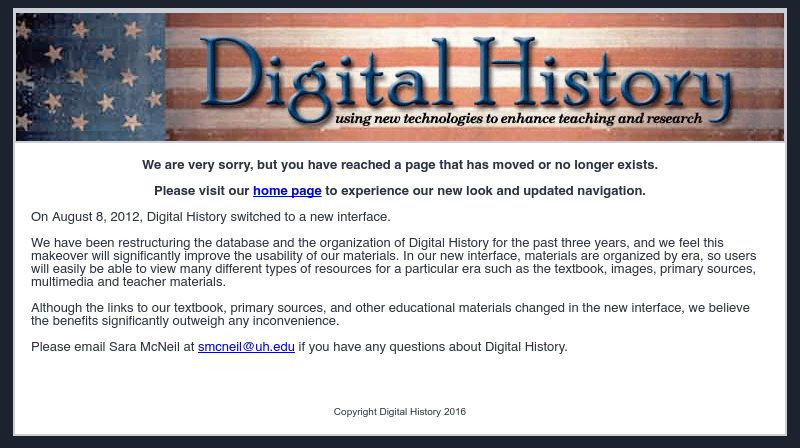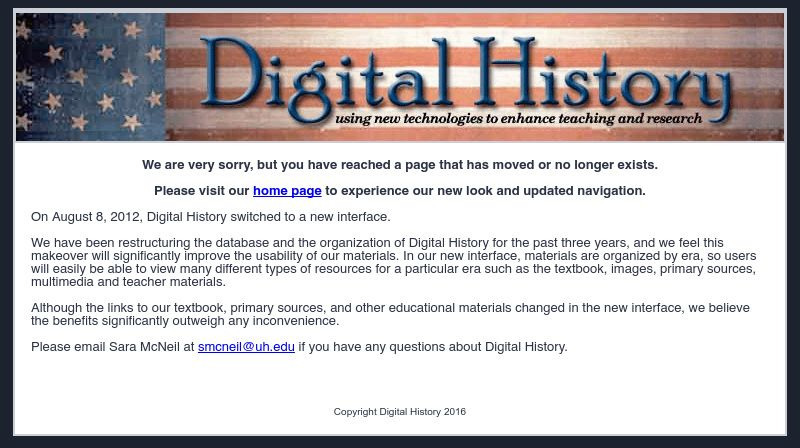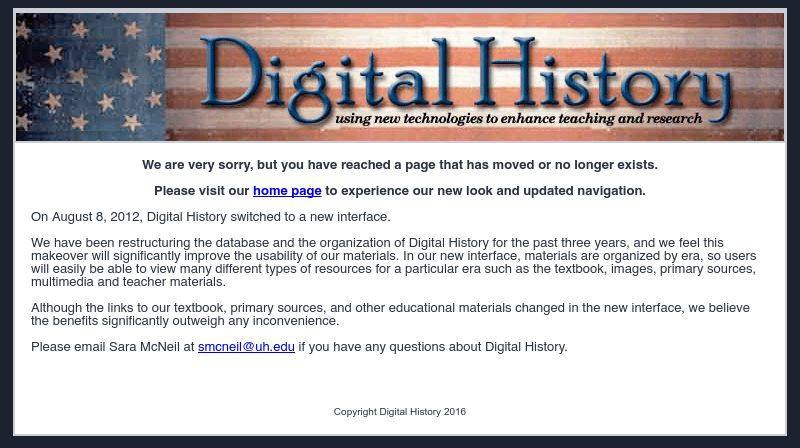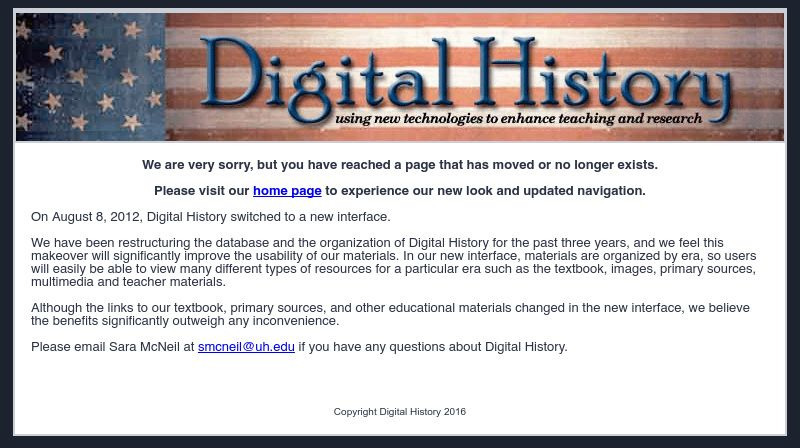Digital History
Digital History: Eisenhower and Civil Rights
Like other U.S. presidents before and after him, Dwight D. Eisenhower was only proactive in instituting civil rights in a very limited way, such as ending segregation in the District of Columbia, including the federal government, and any...
Digital History
Digital History: To the Heart of Dixie
In the early 1960s civil rights activists put the ban on segregation to the test. In 1961, "Freedom riders," boarded buses headed south to test the federal ban on segregated travel. And in 1962, the University of Mississippi was ordered...
Digital History
Digital History: Birmingham, Alabama: Bombingham
The city that best exemplifies white resistance to integration and the tension and conflict of the civil rights movement is Birmingham, Alabama. Learn about events of and reactions to the civil rights movement of the early 1960s in...
Digital History
Digital History: Kennedy Finally Acts
For a president, civil rights proved to be a controversial and sensitive issue. During his time in office, President Kennedy had a mixed record on civil rights. He called for stronger civil rights laws yet moved slowly for fear of...
Digital History
Digital History: The March on Washington
In August 1963, more than 200,000 people marched from the Washington Memorial to the Lincoln Memorial for civil rights. Read about that day in this brief article.
Digital History
Digital History: Collapse of Communism
Overview of the collapse of communism at the end of the 1980s and early 1990s ushered in by Mikhail Gorbachev and his reforms.
Digital History
Digital History: The Impact of the Women's Liberation Movement
This site is an overview of the achievements of the women's movement including employment, wages, education, politics. Also recognizes problems that still exist including gender-specific jobs, wage inequity, divorce and poverty rates.
Digital History
Digital History: Before the American War
Before Vietnam became the stage for an American war against international communism, it was a war between France and Indochina. France, concerned about losing their colonial holdings in Indochina and therefore losing international...
Digital History
Digital History: The Disputed Election of 2000
Online summary of the dispute over the presidential election of 2000 and the outcome.
Digital History
Digital History: The War at Home
By the middle of the 1960s, American public opinion was beginning to favor US withdrawal from the Vietnam War. After the Tet Offensive in 1968 and Nixon's secret bombings of Cambodia, the majority of Americans were calling for complete...
Digital History
Digital History: Oil Embargo
This site has an overview of the causes of the 1970s energy and oil crisis.
Digital History
Digital History: Foreign Policy Triumphs
The Camp David Accords and the Panama Canal Treaty are two of Jimmy Carter's foreign policy achievements are discussed in this web-article.
Digital History
Digital History: Entering a New Century
As the U.S. approached the new century, it was an appropriate time to reflect on the accomplishments and failures of the 1900s both within the country and internationally.
Digital History
Digital History: The Age of Inflation
This site is a short article on inflation, but has a few prices of everyday goods from 1967 that might help in understanding inflation and how much prices have increased.
Digital History
Digital History: The Reagan Revolution in Perspective
By the end of Reagan's second presidential term, the US was a much different country than it had been when he became president in 1980. During his 8 years in office, Reagan accomplished many things, some good and some bad, and definitely...
Digital History
Digital History: Sources of Discontent
After World War Two, many women placed a higher priority on marriage and having a family. However, this trend changed during the 1950s and by 1960 more women were attending college, working outside of the home, marrying later, and having...
Digital History
Digital History: The Growth of Feminist Ideology
The evolution of feminist ideology began in 1949 with Simone de Beauvoir's book, "The Second Sex," and soon grew into a widespread reform movement of the 1960s by following the example of the civil rights movement.
Digital History
Digital History: The Equal Rights Amendment
In 1972, Congress passed the Equal Rights Amendment (ERA) to the U.S. Constitution. The ERA subsequently failed to be ratified by the necessary number of states and was never added to the Constitution.
Digital History
Digital History: Foreign Competition
This site describes how by the 1970s, foreign manufacturers were embedded in the U.S. markets. For the U.S., this meant a loss of sales, a loss of jobs, and a loss of economic confidence.
Digital History
Digital History: Italy
Read about the rise of Benito Mussolini, who became essentially the dictator of Italy prior to World War II. Find out his aims for Italy, and how he went about trying to achieve them.
Digital History
Digital History: Civil Service Reform
Describes the problem of political patronage among government employees, that led to the passing of the Pendleton Act under President Chester Arthur. The Act brought in a merit system for employment in a government job.
Digital History
Digital History: Speeding Communications
A brief look at spread of information at increased speeds due to technological advances such as the telegraph, and the increase in newspaper circulation.
Digital History
Digital History: Transforming American Law
Changes in American law promoted economic growth. See how private companies were protected from penalties and liabilities, and were given special privileges because they contributed to the public good.


